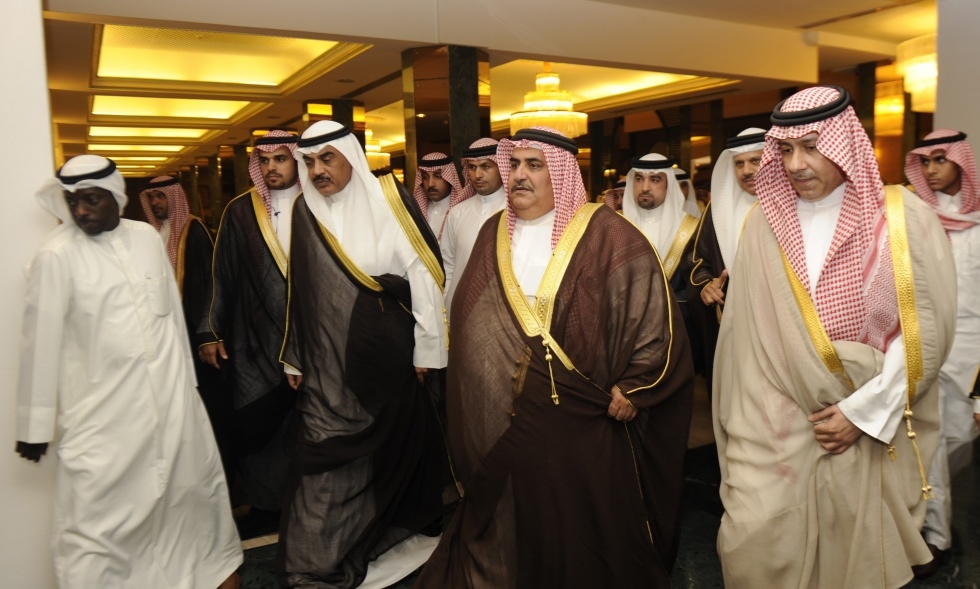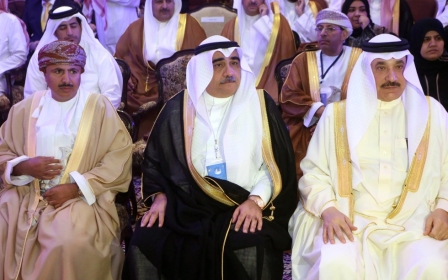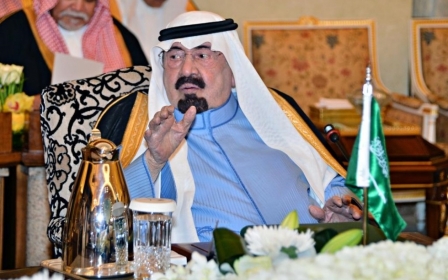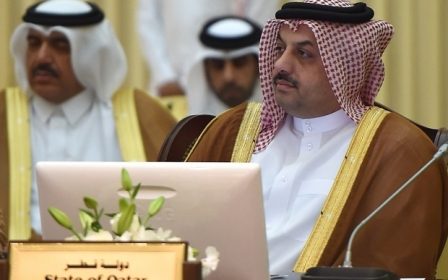Egypt, IS, and oil prices top GCC summit agenda

The Gulf Cooperation Council meets Tuesday for an annual summit freshly reconciled but facing a growing threat from Islamic extremism and falling prices of oil, its main source of revenue.
Gathering in Qatar, whose support for the Muslim Brotherhood caused months of acrimony with fellow members Saudi Arabia, Bahrain and the United Arab Emirates, leaders from the six-nation GCC will seek to boost their influence in the wake of the Arab Spring. They are also expected to act to defend their share of the international oil market amid a shale oil boom.
Security issues and inter-Arab relations are likely to dominate the Doha summit, especially with Egypt where the year-long leadership of the Brotherhood was the spark for the worst diplomatic crisis to hit the GCC since its inception in 1981.
Speaking to Qatar News Agency, the secretary-general of the GCC Abdel-Latif al-Ziyani emphasised that the summit will focus on “the escalating risk of terrorist extremist organizations, the growing regional intervention in Arab affairs, the worsening of the humanitarian suffering of refugees and displaced persons in a number of Arab countries, and the absence of an Arab solidarity stance".
With the signing of the Riyadh Agreement last month, Saudi Arabia, Bahrain and the UAE have now returned their ambassadors to Doha. They had been withdrawn in March over perceived Qatari meddling in their internal affairs as a result of its backing for the Brotherhood.
Egypt's president, former army chief Abdel Fattah al-Sisi, in July last year toppled his predecessor, the Brotherhood's Mohamed Morsi who was the first freely elected head of state in the Arab world's most populous nation.
Qatar had been accused of destabilising the region by supporting the Brotherhood and giving refuge to opponents of its GCC partner states.
Lebanese journalist and analyst Abdelwahab Badrkhan said he believes the GCC reconciliation was motivated mainly by the threat posed by the rise of the Islamic State organisation in Syria and Iraq, which has prompted the Gulf monarchies to join a US-led campaign of air strikes targeting the group.
Asharq al-Awsat's Salman al-Dosari has said that if the GCC fails to deal with the challenges at the summit, differences particularly over Egypt, the Muslim Brotherhood, IS and Iran, could end up being exacerbated.
'Joint military command'
One Gulf official told AFP the summit will see the formation of a "joint military command" to coordinate anti-IS military action with their partners.
A GCC joint military command - the "Peninsular Shield" force - was formed in 1982, but it is thought the summit could bring a more strident role given the rise of the Islamic State group.
Badrkhan said that having overcome their divisions on the Syrian crisis, and promoting a political solution there, "GCC divergences persist on relations with Egypt and the regional role of Iran", the Shiite powerhouse across the narrow Gulf.
The growing influence of the Islamic republic, main rival to Sunni Saudi Arabia, stirred regional tensions in the wake of the Arab Spring of 2011 and also as the United States and Iran began talks on Tehran's controversial nuclear activities.
GCC member Oman, which maintains good relations with Iran, acted out of step with its regional partners by hosting secret Iran-US discussions in 2011 and 2012, and mediating in crunch nuclear talks in November.
Another key issue for the summit is the plummeting price of oil, the driving force behind regional wealth.
A barrel of crude has lost 40 percent of its value since June, and prices continue to tumble since OPEC opted to maintain current production levels despite a market glut.
Oil has provided a bulwark of nearly two and a half trillion dollars in cash reserves, but for the Gulf monarchies "preserving market share has become more important than defending price levels", according to Kuwaiti expert Kamel al-Harmi.
New MEE newsletter: Jerusalem Dispatch
Sign up to get the latest insights and analysis on Israel-Palestine, alongside Turkey Unpacked and other MEE newsletters
Middle East Eye delivers independent and unrivalled coverage and analysis of the Middle East, North Africa and beyond. To learn more about republishing this content and the associated fees, please fill out this form. More about MEE can be found here.




